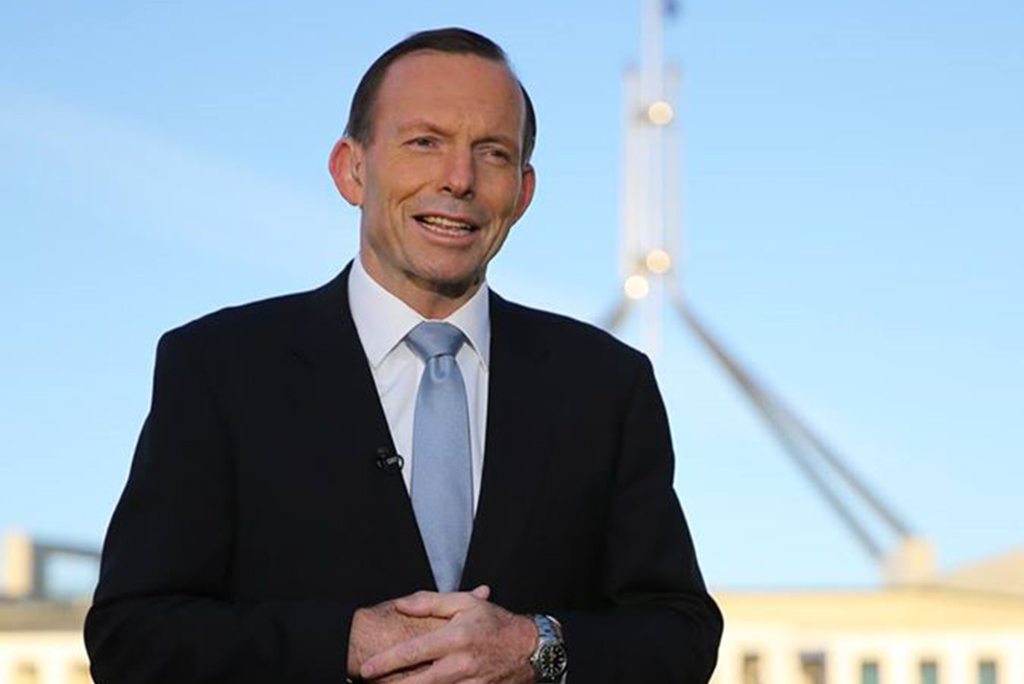Tony Abbott Thinks Remote Aboriginal Communities Are “Lifestyle Choices,” Because Of Course He Does
The Prime Minister for Aboriginal Affairs, everybody.

Tony Abbott’s solemn pith-helmeted quest to be “the first Prime Minister for Aboriginal affairs Australia has ever had” has never gone as smoothly as he’d like. Yesterday an Aboriginal peak body in the Northern Territory urged him to give up responsibility for a number of Indigenous policy areas and hand them back to the Department of Health, and back in July his assertion that “Australia was unsettled or, um, scarcely-settled” came as a surprise to the hundreds of thousands of Aboriginal Australians with ancestors who were hanging out here when freaking mammoths existed.
But he’s somehow managed to top even that comment with his referring to remote Aboriginal communities as “lifestyle choices,” putting Indigenous people’s cultural and spiritual connection to country roughly on par with your rich Boomer relatives’ decision to move to Noosa for the sea air.
“What we can’t do is endlessly subsidise lifestyle choices if those lifestyle choices are not conducive to the kind of full participation in Australian society that everyone should have,” Abbott told ABC Radio in Kalgoorlie yesterday (“Australian society,” in this context, means “white society,” for those playing at home).
@TonyAbbottMHR is being a massive dickhead a lifestyle choice?
— Scott Bridges (@s_bridges) March 10, 2015
Abbott’s pearl of imperialist wisdom has sparked outrage and disgust almost unprecedented even for him, which at this stage is saying something. Opposition Indigenous Affairs spokesman Shayne Neumann called the PM “a disgrace,” Twelve Canoes and Charlie’s Country director Rolf de Heer said the comments displayed “such ignorance that he has no right to be the prime minister of Australia,” and Greens Senator Rachel Siewert called them “unbelievably racist.” Even the PM’s own advisor on Indigenous Affairs, Warren Mundine, has called Abbott’s characterisation a “complete misconception”.
Personally I’m curious to know Andrew Bolt’s thoughts on the aboriginal ‘lifestyle choice’ #auspol
— Charlie Pickering (@charliepick) March 10, 2015
Considering Abbott’s formerly positive inclination to culture, homelands and languages, the lifestyle choice jibe really is pure cynicism.
— Katharine Murphy (@murpharoo) March 10, 2015
Abbott’s spectacularly misguided worldview and seemingly-complete inability to understand the Indigenous connection to country is one thing. But the outrage his comments have generated may have a positive side-effect by turning people’s attention to one of the government’s more heinous policies — one that has managed to escape the kind of high-profile opposition proposals like the Medicare co-payment have attracted.
In September the federal government announced that it was cutting off funding for things like power, water and gas in remote Indigenous communities, leaving the burden to fall on the states. Remote Indigenous communities are often home to very small numbers of people in very isolated areas, and providing such places with the infrastructure needed to sustain them is often hugely expensive, but the Commonwealth has stumped up the necessary funds for decades to keep Indigenous people on their ancestral lands.
Since the cuts were announced, state governments in Western and South Australia have flagged the need to close up to 210 communities — not because they want to, but because there’s simply no way they can afford to keep these communities running by themselves. WA Liberal Premier Colin Barnett has said himself that he knows closing communities will “cause great distress” to Aboriginal people forced to move, as well as to “regional areas and towns as Aboriginal people move into them,” but that he has “no option”.
Ripping on the PM for ridiculous comments has become a national pastime in the last eighteen months. But if Abbott’s latest foot-in-mouth spectacular creates more opposition to a deeply misguided and potentially damaging policy like this one, there’s a chance this debacle will have a pretty solid silver lining.